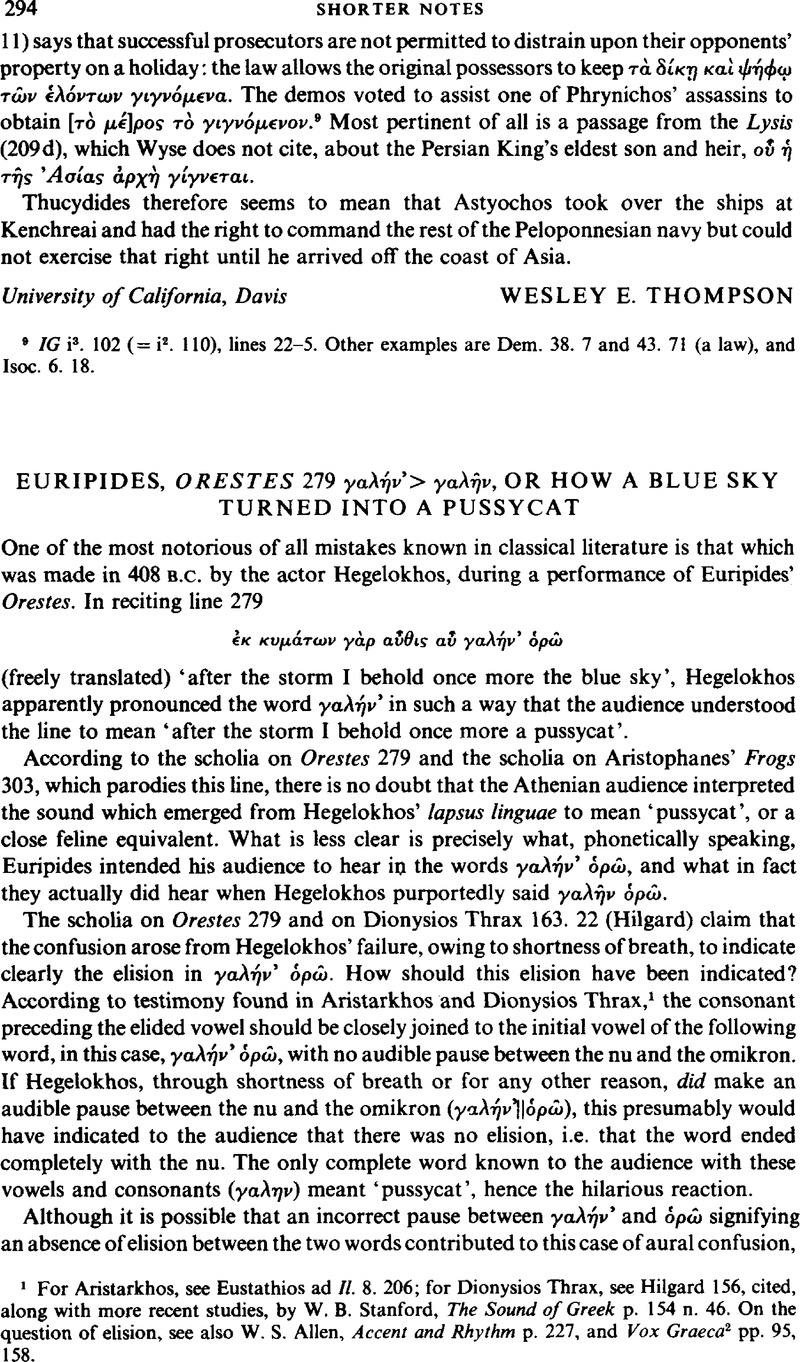 ν, Or How a Blue Sky Turned into A Pussycat
ν, Or How a Blue Sky Turned into A PussycatPublished online by Cambridge University Press: 11 February 2009

1 For Aristarkhos, see Eustathios, ad Il. 8. 206Google Scholar; for Dionysios Thrax, see Hilgard 156, cited, along with more recent studies, by Stanford, W. B., The Sound of Greek p.154n. 46Google Scholar. On the question of elision, see also Allen, W. S., Accent and Rhythm p.227Google Scholar, andVox Graeca 2 pp. 95, 158.
2 See Allen, , Accent and Rhythm p.227n. 2Google Scholar.
3 As just shown, if the word were pronounced γαλην' (without accent), this would in no way affect our argument.
4 A few typical examples: Eur, .Hek. 11Google Scholar Instead of τείχη πεσοι a Scribe Writes τείχη πεση δ Hek. 19 Instead of θρῃκ⋯ πατρῴῳ a scribe writes θρῃκ⋯ πατρῴῳ; Hek. 99 Instead of τàς δεσποσύνους σκην⋯ς a scribe writes τàς δεσποσύνους σκην⋯ς. Most of us make similar errors in our own copying.
5 Whether or not Hegelokhos was subconsciously influenced by the immediately preceding pussycat-like sounds of αὖθις αὖ to produce his own pussycat effect, I shall leave to the conjecture t of acoustic psychologists. I should at this point add that my translation of γαλ⋯ as ‘pussycat’ involves a bit of lexical licence. LSJ gives the meaning as ‘weasel, marten, polecat, or foumart’, though apparently some weasels were domesticated.